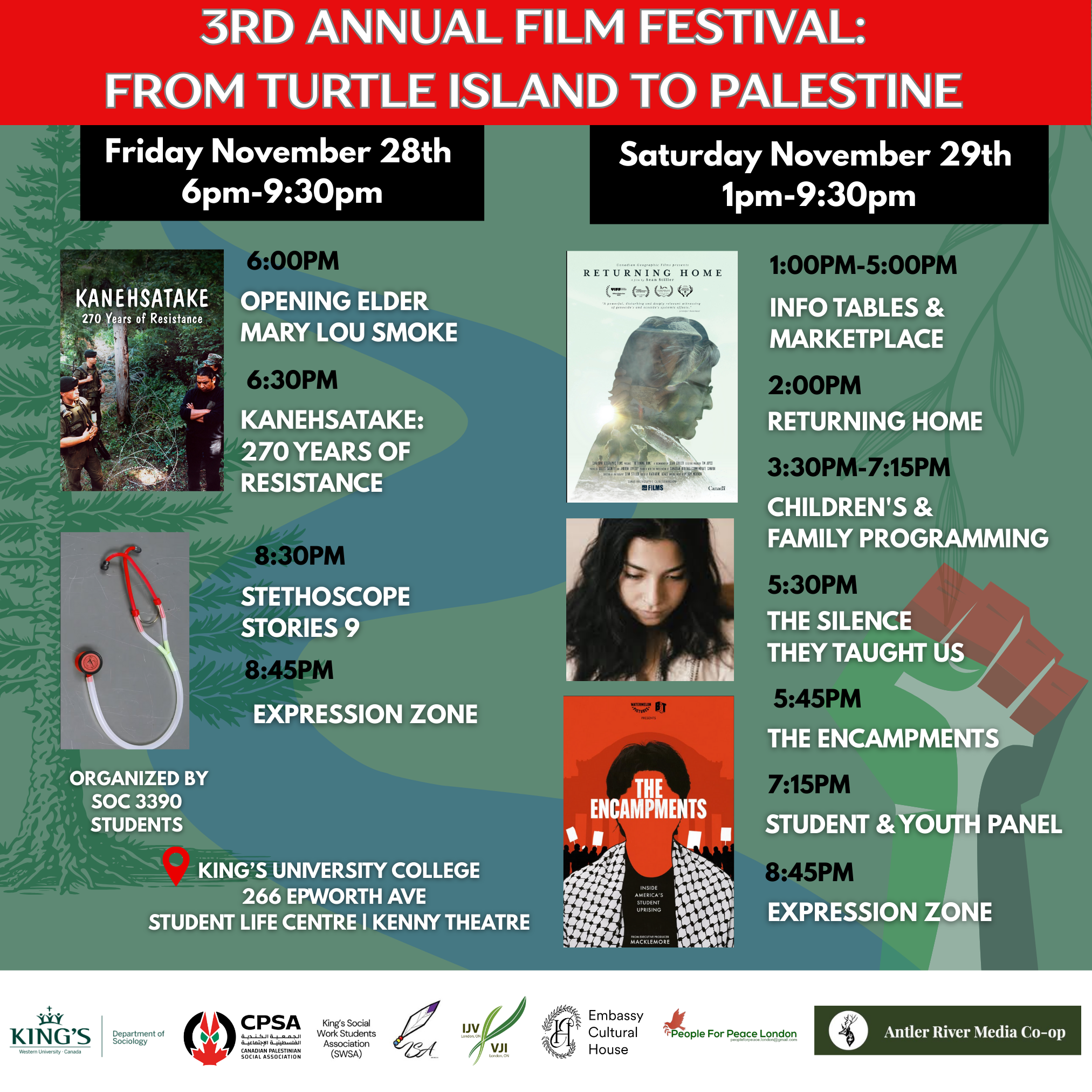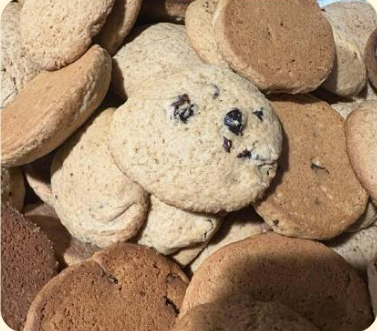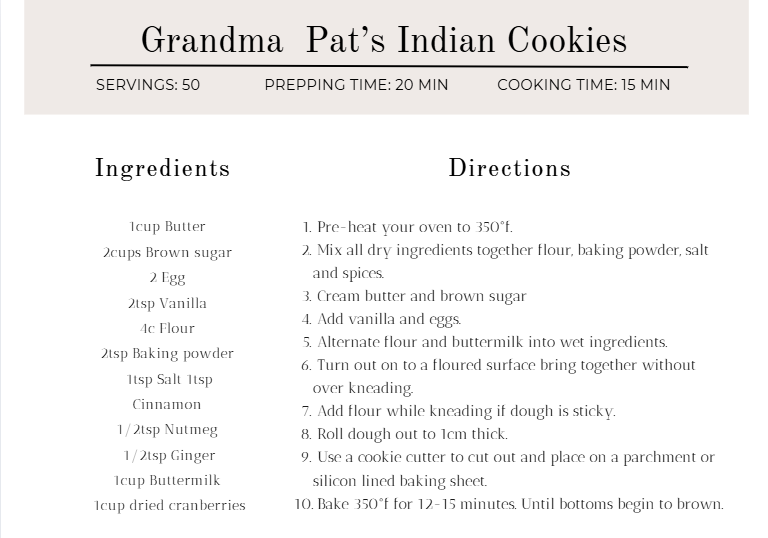
Care and revolution everywhere in beloved community
Through Healing Circles, Elders’ teachings, shared meals and community action we are changing the world through love and care.
A grassroots collective started by students at King's University College, we invite anyone who believes that none of us are free until all of us are free, to join our beloved community!
JOIN US!
Featured Action:
Solidarity Rooted in Decolonial Love
“Indigenous struggle cannot simply be accommodated within other struggles; it demands solidarity on its own terms”
What’s love got to do with it?
Decolonial love is loving the identities, cultures, traditions, lands and All Relations, Ancestors, languages, and ways of knowing and being of Peoples and Nations living under colonialism - particularly Indigenous Peoples and Nations.
This love tells everyone who wants to be an ally, who wants to act in solidarity, that:
“meaningful support for Indigenous struggles cannot be directed by non-natives.. [it] means being humble and honouring front-line voices of resistance as well as offering tangible solidarity as needed and requested. Specifically, this translates to taking initiative for self-education about the specific histories of the lands we reside upon, organizing support with the clear consent and guidance of an Indigenous community or group, building long-term relationships of accountability and never assuming or taking for granted the personal and political trust that non-natives may earn from Indigenous peoples over time.
In offering support to a specific community in the defence of their land, non-natives should organize with a mandate from the community and an understanding of the parameters of the support being sought.”
Palestine Solidarity: Respect and Reciprocity
Palestinians are Indigenous to Palestine. Palestinians who have been made refugees and who are living in Diaspora are an Indigenous People.
Solidarity with Palestinians also requires taking the lead of Palestinian community, listening with humility, educating yourself on the history and ongoing genocide in Palestine, educating yourself on the liberation struggle, enacting tangible support with ongoing guidance from Palestinian community, making sure not to centre yourself, and recommitting every day through action.
It can be easy to fall into common allyship traps, and to believe the following MYTHS:
“I am here every single day, struggling alongside Palestinians, so I should have an equal role in leading the movement”
“MY priorities are more important than the priorities of Palestinian leadership and community”
“Since I am here so much, it’s the responsibility of Palestinian community to take care of all of my needs”
“Palestinian community owes me. If I need a lawyer because of the risks I am taking, it is their responsibility to pay”
Right now, at a time of intensified genocide, Palestinian community is carrying so much: caring for Palestinian community here, caring for family and community in Palestine from afar, watching the genocide of their loved ones, knowing that if they were at home they would be targeted, feeling helpless to stop Israeli settler colonial violence, working tirelessly to influence our governments to stand with Palestine and embargo arms and military trade with the Israeli regime, and trying to sustain their own mental health at a time of ongoing crisis.
If you choose to act in solidarity, please know that it’s important not to add additional burdens onto the shoulders of Palestinian community. Their welcoming, caring and generosity are not an invitation to heap more responsibilities onto their plates.
Ways to be a good solidarity actor:
With permission from Palestinian organizers and community, enact reciprocity by doing what you can to care for people in the movement - whether this is fundraising for a community legal fund, cleaning up the land, or offering to share your skills. And know that if community decides to go in another direction, that’s their prerogative as the community at the centre of the movement (because the organizing is to liberate Palestine)
Check your privilege - enact respect by constantly checking in with yourself and fellow allies to make sure you’re not inadvertently centring yourselves or adding to the already full plates of Palestinian organizers and community
Walk with humility - ask when you are not sure about something, trust Palestinian organizers and community are doing the best they can, support in the ways you are asked to support, and refrain from taking actions that will undermine or sabotage the goals of Palestinian organizers and community (even when you think those actions are a good idea).
Solidarity is not easy. Coalition is not home. Freedom is a constant struggle. May we not stop, may we not rest, until all of us are free.

“Elders Mary Lou Smoke and Dan Smoke Baa taught me a lot about acting in solidarity…that we need to respect people the way we wish to be respected.”
— Student, SOC 3391 Decolonization II: From Turtle Island to Palestine







